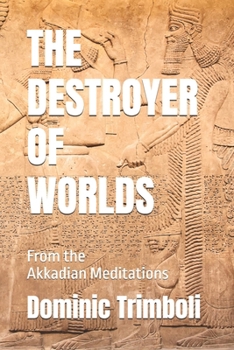The Destroyer Of Worlds: From the Akkadian Meditations
Select Format
Select Condition 
Book Overview
A highly advanced humanoid civilization resides in a protected realm known as Agartha and have existed on the Earth for millennia. Watching our progress as a species from afar, their ancient laws forbid them from intervening in our affairs. When the first atomic bomb is detonated, they choose to reveal themselves with an offer to share their technology on the condition that we forego our warlike ways. They choose James Forrestal, the first US Secretary of Defense as their emissary to deliver this message. But some in the government are skeptical of their message of peace, seeing nuclear weapons as our only protection against them. Set in the late 1940s, humankind stands at a crossroads as a civilization, should we join with the Agarthans and abandon our cultural norms, our view of accepted history and cherished beliefs or is there an ulterior motive to their offer?
Format:Paperback
Language:English
ISBN:B086PLBX2R
ISBN13:9798629258162
Release Date:April 2020
Publisher:Independently Published
Length:436 Pages
Weight:1.40 lbs.
Dimensions:1.0" x 6.0" x 9.0"
Customer Reviews
4 customer ratings | 3 reviews
There are currently no reviews. Be the first to review this work.




















